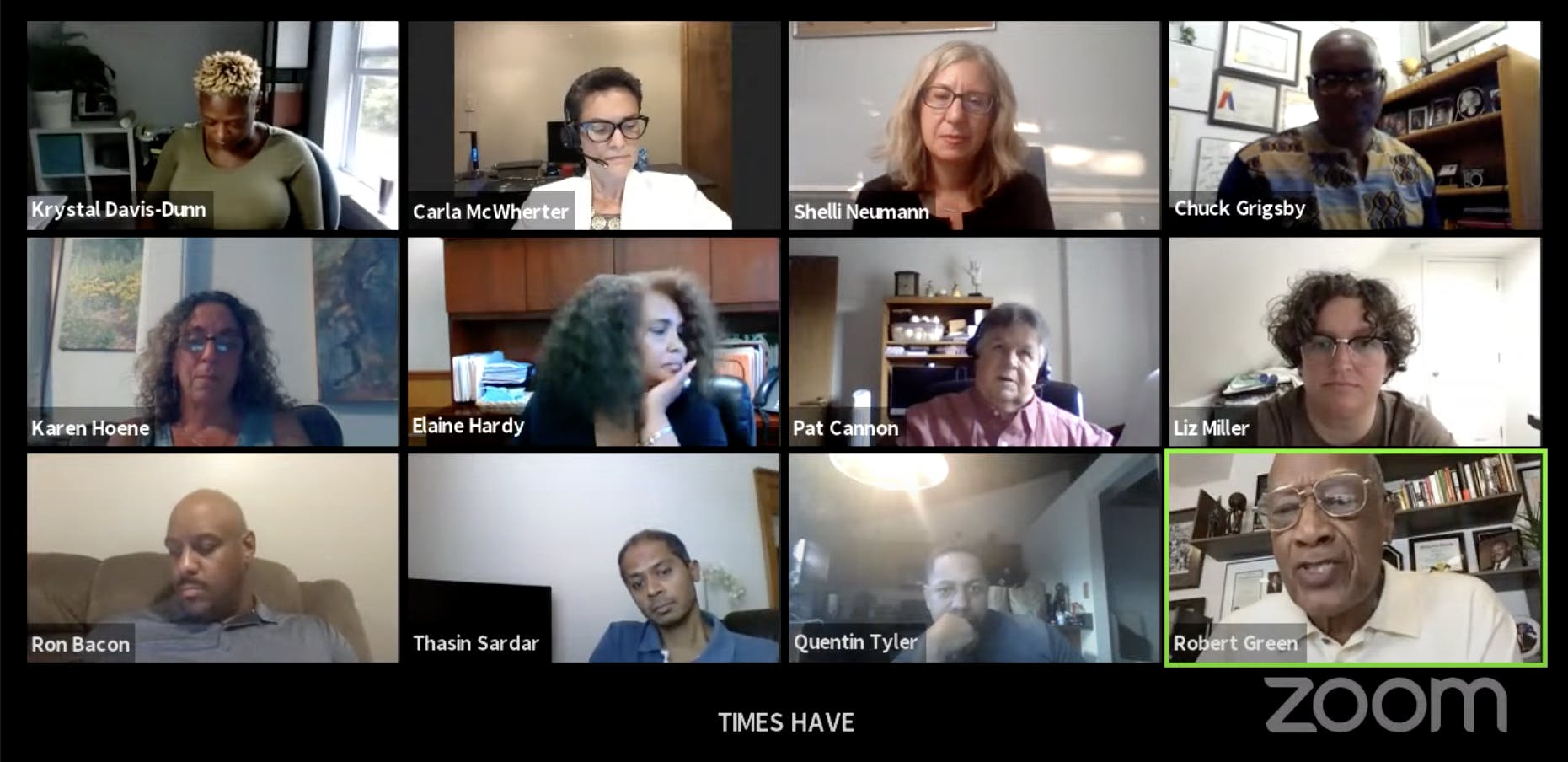Dr. Robert L. Green, who worked with Dr. Martin Luther King Jr. to head up an education program, spoke at the East Lansing Human Relations Commission virtual meeting last Wednesday. This meeting was a commemoration of the first HRC meeting in Sept. 1963.
Green was also the first Black person to buy a home in East Lansing. He recalled memories of his activist life and shared his experience with the HRC members.
“Simply because East Lansing was a college town, that did not mean you would be treated fairly, because some of the more active, vocal people who were in favor of housing discrimination against minorities were on the faculty of the university,” Green said.
Making connections between past housing discrimination issues and citizen’s lives now, Green continued to share his story.
“Realtors were very powerful, very influential, and they would speak up for what they wanted,” Green said. “They would come to commission meetings and speak up in favor of keeping East Lansing safe — as they said at the time — and it’s interesting that’s being said again today, that we gotta keep our community safe.”
He commented on the Black Lives Matter protests across the U.S. as well.
“I just want to say that when I watch the demonstrations today in cities throughout the country in which young people are working (and) fighting to overcome discrimination, it reminds me of my days at Michigan State,” Green said.
The HRC’s purpose is to protect and advocate for human rights, so Green stressed the importance of prohibiting racial bias within a community.
“Discrimination gnaws at you, it eats at you, and if you have to spend your time fighting racial discrimination, you have less time to work on the good things that are important in life, like making sure that the schools are good and safe and that your kids are doing well academically,” Green said. “Those are the real issues that count.”
The discussion centered around the previous edits to Ordinance 1491, which is the disorderly conduct code for East Lansing. The City Council made edits highlighted in red and the HRC made added edits highlighted in green. The “reserved” statuses were put in place to items that might be addressed in other areas on the document.
The reason for the edits was to clarify language, hopefully minimizing unwarranted arrests and limiting discretionary decisions by public safety officials. They reviewed each item and edited a few changes for a final time.
Commissioners shared concerns over certain wording, such as item number 10 which addresses concerns over assemblies labeled as riots.
“The part that really worries me on this is really, when it comes down to it, what’s the difference between a protest you don’t like and a riot?” Commissioner Carla McWherter said. “Who gets to make that distinction? Is that a distinction that we feel comfortable leaving in the hands of the police or is that something we want to be more specifically defined?”
After a vote, the HRC voted to remove this language entirely, along with other edits to the document. Dialogue for these edits was led by the newly elected chair.
The HRC elected Commissioner Chuck Grigsby as chair and Commissioner Krystal Davis-Dunn as vice-chair. Both were nominated and approved unanimously.
Ron Bacon also sat in on the meeting as the City Council Liaison for the first time.
“I think this is really the time, you’re in the moment in time where you can really make an impact,” Bacon said to the Commission. “You have a lot of inertia around the issues of human relations and human rights and I think you’re really in a good position here. Seize it and really work on the important issues facing East Lansing and the nation.”
To have influence in the HRC’s decisions, citizens can now apply to join the Commission, as there is a vacancy. Community members can apply for a board application if they are interested.
“Times have changed,” Green said. “The work of the commission might be even more challenging today than it was years ago.”
Support student media!
Please consider donating to The State News and help fund the future of journalism.
Discussion
Share and discuss “First Black person to buy a home in East Lansing shares memories at Human Relations Commission” on social media.







